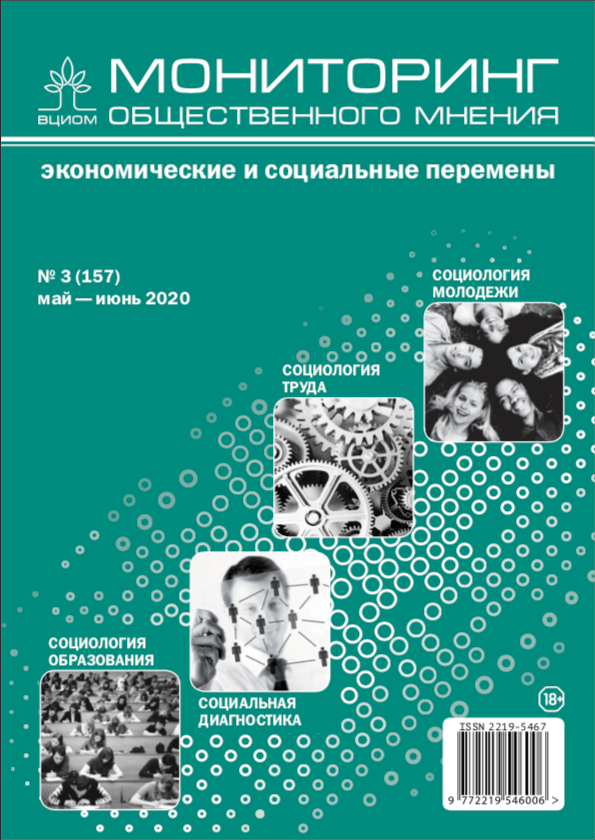Kazan Muslim Communities at the Beginning of the 21st Century: Causes of the Rise and Fall of Islamic Youth Activism
DOI:
https://doi.org/10.14515/monitoring.2020.3.1617Keywords:
religion, deprivatization of religion, youth, youth life strategy, civil activism, modernity, Muslim communitiesAbstract
Modernity encourages rethinking the conventional interpretations of society and politics within a secular paradigm. Multiple forms of return of religion to the public sphere, the intersection of institutional and non-institutional aspects suggest new forms of religion-centered civic activism. Sociological studies in recent decade point out that this process has largely affected the Tatar youth traditionally professing Islam. Associations “Consciousness” and “Altyn Urta” set up by Muslim students in 2004-2012 are some examples of initiative groups in Kazan. The article is based on the in-depth interviews with their members conducted in 2012-2013 and 2018-2019 by the authors. At the height of religious revival, these associations crossed the border of religious private sphere and started to actively explore the public space building new strategies in accordance with the Muslim beliefs. With this grassroots initiative the organizations were trying to focus on their civic activities not intervening in the field of state institutions and political activities. They conducted their activities at the intersection of religious and social spheres. The life strategies of their members were based on the following principles: self-identification as a mainstream movement featuring a positive image coupled with a growing trend towards self-identification as a Muslim community worldwide; ambitious goal-setting going beyond narrow group interests; quick response to challenges; refusal to follow hierarchical paternalist strategies with an emphasis on horizontal participation.
Broader issues arise due to a decline in the activities of these organizations, their elimination from the civic domain, their numerous activities narrowed down to mere support for the Tatar language and culture and religious socialization in a family. These issues deal with the specifics of state-society and religion-society relationships, the levels of social activities in Russia and the effectiveness of life strategies which involve a religious resource.
Downloads
Published
How to Cite
Issue
Section
License
Copyright (c) 2020 Monitoring of Public Opinion: Economic and Social Changes Journal (Public Opinion Monitoring) ISSN 2219-5467

This work is licensed under a Creative Commons Attribution-NonCommercial-ShareAlike 4.0 International License.






